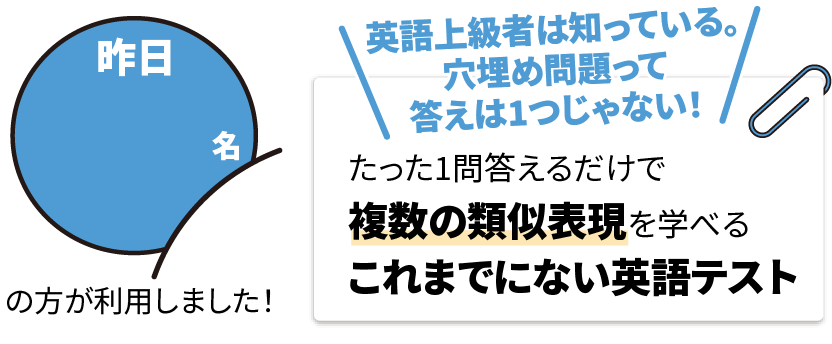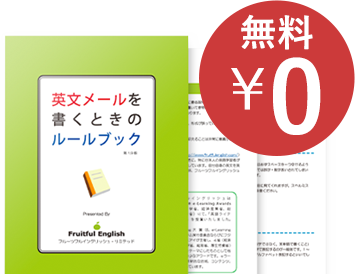Hello, this is Simon.
Some of the more difficult tenses for Japanese people who are learning English are the perfect tenses. The most commonly used are the present and past perfect tenses. I have noticed over the years that the most common mistakes people tend to make are with the past tense and present perfect tense, or with the past tense and past perfect tense.
Below are examples of some common mistakes that I have come across over the years. Maybe you have said these kinds of expressions yourself. You can probably guess what the correct answers should be because I pretty much gave it away in the first paragraph. But do you know why these expressions are either incorrect, don’t have the best wording?
時制のよくある間違い パターン①
“I have been to the beach last week.”
“I have lived in America when I was a kid.”
“My family has come to stay two days ago.”
The present perfect tense is used to talk about things existing or happening over a period of time that started in the past and have continued to the present. As you can see in the above expressions, they are all talking about a time in the past (last week / when I was a kid / two days ago), so the past tense should be used:
→”I went to the beach last week.”
→”I lived in America when I was a kid.”
→”My family came to stay two days ago.”
Of course the present perfect tense could also be used, but the wording would need to change:
“I have been to the beach this week.”
“I have lived in America.”
“My family has stayed here for two days now.”
時制のよくある間違い パターン②
“I played tennis for 20 years, but I don’t practice so much these days.”
“I owned my car for such a long time that I just can’t sell it.
Both of these sentences end with something to indicate you are talking about the present.
For example “these days”, or “I just can’t sell it”, which indicates your current feeling. Because in these sentences you currently play the piano and own the car, both playing tennis and owning a car are things that started in the past and have continued to the present, so the present perfect tense should be used:
→”I have played tennis for 20 years, but I don’t practice so much these days.”
→”I have owned my car for such a long time that I just can’t sell it.
時制のよくある間違い パターン③
“I’m sleepy because I didn’t fully wake up.”
“I really want to start driving, but I didn’t get my drivers’ license yet.”
“OMG! I didn’t go shopping this week, and it’s already Wednesday!”
The first two sentences indicate you are talking about the present, such as the phrase “I’m sleepy” indicating your current condition, or the adverb “yet” implying the present.
For the third sentence, the phrase “it’s already Wednesday”, indicates that “this week” hasn’t finished so it is the present. These all indicate a negative condition or state (not waking up fully / not getting a driver’s license / not going shopping) that has continued until the present.
Since these are negative expressions they all indicate something that started in the past and is unfinished or incomplete, so should use the present perfect tense:
→”I’m sleepy because I haven’t fully woken up.”
→”I really want to start driving, but I haven’t gotten my drivers’ license yet.”
→”OMG! I haven’t been shopping this week, and it’s already Wednesday!”
時制のよくある間違い パターン④
“What’s the matter? I lost my wallet!”
The past tense “I lost my wallet!” means that you lost your wallet at some time in the past. However, with the past tense, it isn’t known whether have since found your wallet, or it is still lost.
To let someone know both what happened (I lost my wallet.) and the current state or condition (My wallet is still lost.), we use the present perfect tense:
→“I have lost my wallet!”
時制のよくある間違い パターン⑤
“I had lived in Kyoto for 2 years.”
“When I was in high school, I had played soccer.”
The past perfect tense is used when we are talking about a time in the past, and want to say that something happened before that. So basically there needs to be a reference point to indicate you are talking about a time in the past (e.g. When I turned 30, I had already lived in three different countries.) In this case turning 30 is the reference point and living in three different countries happened before that.
A common mistake is to use the past perfect tense to simply talk about something you used to do in the past. For that the simple past tense should be used:
→“I lived in Kyoto for two years.”
→“When I was at high school, I played soccer.“
(The past perfect tense “When I was at high school, I had played soccer“ implies that you played soccer before you were at high school.)
Of course the past perfect tense could be used, but the wording would need to change:
“I had lived in Kyoto for two years, before I moved here.”
“I started playing rugby after I graduated high school. Until then, I had played soccer.”
時制のよくある間違い パターン⑥
“When I got to work, realized I forgot my iPhone.”
Getting to work happened at a time in the past. Forgetting (to take) your iPhone happened before that. To show this, and your condition or state at that time (you didn’t have you iPhone with you), the past perfect tense is used:
→”When I got to work, I realized I had forgotten my iPhone”
I hope this was of some use. See you next month!
Best regards,
Simon

Hello! My name is Simon.
I am from New Zealand, and have been living and teaching English in Japan since 1999.
My hobbies include movies, playing the guitar, gardening and hiking.
※このブログでは英語学習に役立つ情報アドバイスを提供していますが、本ブログで提供された情報及びアドバイスによって起きた問題に関しては一切、当方やライターに責任や義務は発生しません。
※ここでの情報や助言を参考に英文を書いたり下した判断は、すべて読者の責任において行ってください。ここに掲載されている記事内の主張等は、個人の見解であり当社の意見を代弁・代表するものではありません。








 (4 イイネ!が押されています)
(4 イイネ!が押されています)



























コメントする